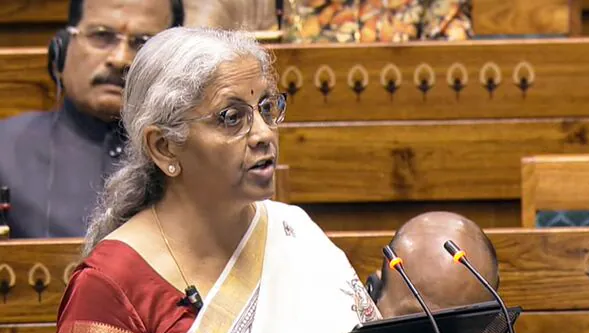Experts Weigh In on Healthcare Allocations in Union Budget 2025-26: A Mixed Bag of Progress and Misses
Union Budget 2025-26 allocates ₹98,311 crore for the healthcare sector, signaling a significant push for growth, with key measures like customs duty exemptions on life-saving drugs and the establishment of daycare cancer centres. However, experts remain concerned over the lack of action on GST rationalization for medical devices and the absence of long-awaited reductions in customs duties on essential medical equipment.
The healthcare sector's bigwigs hailed the exemption of customs duty on 36 additional life-saving drugs/medicines, the addition of six medicines at concessional customs duty, and the setting up of daycare cancer centers at all district hospitals, all of which will benefit patients and the healthcare ecosystem.
They also gave a thumbs up to the addition of 10,000 additional medical seats with a goal of adding 75,000 seats over the next five years, which will improve the availability of medical personnel.
However, the major miss was the long-pending reduction in customs duties on essential medical equipment and consumables to lower healthcare costs significantly, as well as IT rebates and revisions in GST rates on medical devices.
Ameera Shah, Promoter and Executive Chairperson of Metropolis Healthcare Ltd, said, "Critical areas like GST rationalisation in healthcare require urgent attention. Increasing the tax exemption for preventive health check-ups, extending benefits to multiple family members, and integrating outpatient diagnostics into insurance packages will significantly enhance affordability and encourage proactive health management. We look forward to continued dialogue and effective implementation to build a more resilient, inclusive, and future-ready healthcare system."
Emphasizing a revision in GST rates on medical devices, Dr. Harsh Mahajan, Chair of the FICCI Health Services Committee and Founder & Chief Radiologist at Mahajan Imaging & Labs, said, "The absence of a revision in GST rates on medical devices is concerning. A reduction in GST would have provided immediate relief to the healthcare sector, particularly for diagnostic and imaging technologies crucial to timely patient care."
Dubbing the Union Budget 2025-2026 for the medical devices industry as disappointing, Rajiv Nath, Forum Coordinator of the Association of Indian Medical Device Industry (AiMeD), said, "There is no mention of any investment promotion measures for the import-dependent sector in the main speech. We had hoped that there would be some measures to boost the sector in the fine print."
He added, "The industry is disappointed that the expectations of the medical devices sector, many of which had been supported by the Department of Pharmaceuticals as an investment enabler under the National Medical Device 2023 policy, found no mention in the speech. We were hoping to see the finance minister speak about medical devices as a 'Make in India' enabler and address the 70% import dependence due to inadequate tariff protection with duties at zero to 7.5 per cent in most cases, along with the ever-rising imports bill, which is expected to cross ₹75,000 crore this year."
Dr. B. S. Ajaikumar, Executive Chairman of Healthcare Global Enterprises Limited, said, "The customs duty exemption on life-saving drugs and medicines is a move in the right direction. However, the provisions need to be studied in detail to gauge the exact impact. There was a strong need to include linear accelerators and other critical equipment in the list of customs duty exemptions, along with X-ray tubes and flat-panel detectors used in medical X-ray machines, but the government has disappointed us once again."
Dr. Ajaikumar also added that the allocations to healthcare continue to fall short of addressing sectoral needs and priorities, and they are minuscule when compared to defense and other priority sectors.
"Rather than promote medical tourism and inviting private hospitals to collaborate in the effort, the government should institutionalize a robust universal care model and urge private industrialists to contribute to the corpus. Only a full-fledged universal care model can bring uniformity of treatment through the cross-subsidy model, thereby lessening the financial strain and eliminating the debt traps for the common people of the country. We see nothing announced in this direction, in budget after budget," he added.
According to healthcare bigwigs, the Union Budget 2025-26 marks an important step towards enhancing healthcare accessibility and equity, with noteworthy provisions for life-saving drugs and medical education, critical issues like GST rationalization and customs duties on medical devices remain unresolved. Stakeholders are hopeful that continued dialogue and focused policy actions will address these gaps, ultimately creating a more inclusive, resilient, and sustainable healthcare system for India.



COMMENTS
All Comments
By commenting, you agree to the Prohibited Content Policy
PostBy commenting, you agree to the Prohibited Content Policy
PostFind this Comment Offensive?
Choose your reason below and click on the submit button. This will alert our moderators to take actions